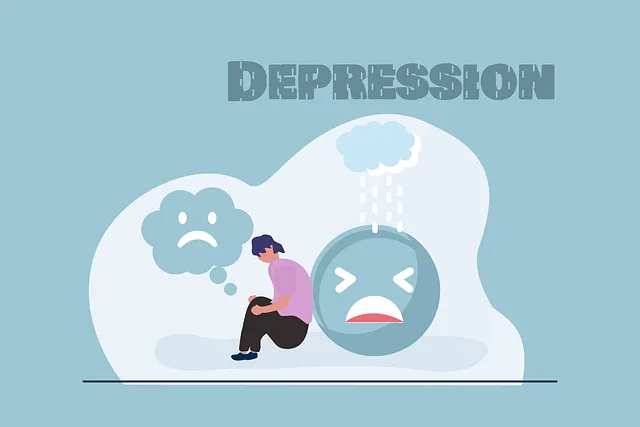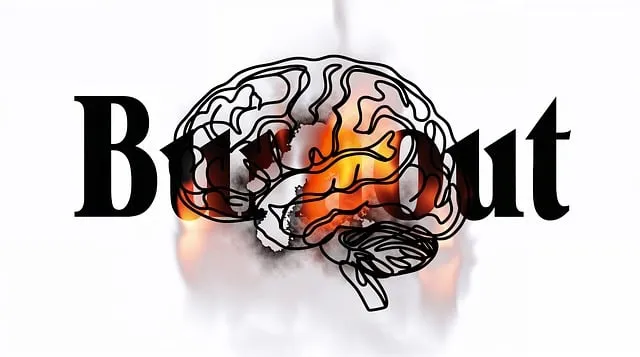Risk assessment is crucial in mental healthcare, allowing providers to protect patient well-being by identifying and mitigating risks based on mental state, history, and environment. Services like those offered by Centennial's Kaiser program, which covers mental health, play a key role in developing effective treatment plans tailored to individual needs. This proactive approach enhances outcomes, promotes emotional well-being, and fosters resilience for patients seeking anxiety relief or exploring mind over matter principles. For mental health professionals, risk management, including self-care and resilience programs, is vital for navigating challenges while maintaining quality care, as supported by resources like Kaiser coverage in Centennial.
In the demanding field of mental health care, professionals encounter a unique set of risks that require thorough assessment. This article explores essential aspects of risk assessment for mental health practitioners, guiding them through complex terrain. We delve into understanding risk assessment, examining Kaiser’s coverage of mental health services, and providing actionable strategies for identifying and mitigating risks. By adopting effective risk management techniques, professionals can ensure the well-being of both clients and themselves, especially considering Centennial areas where Kaiser covers mental health services.
- Understanding Risk Assessment in Mental Health Practice
- Kaiser's Coverage for Mental Health Services
- Identifying and Mitigating Risks for Professionals
- Strategies for Effective Risk Management
Understanding Risk Assessment in Mental Health Practice

In the realm of mental health care, risk assessment is a cornerstone practice that helps healthcare providers ensure patient safety and promote emotional well-being. It involves a systematic process of identifying, evaluating, and mitigating potential risks associated with an individual’s mental state, history, and environmental factors. For mental health professionals, understanding this process is crucial, especially as they navigate complex cases and diverse client populations. Risk assessment isn’t just about identifying threats; it’s about fostering resilience and enabling individuals to develop inner strength, techniques that are integral to the healthcare provider cultural competency training.
Centennial does Kaiser cover mental health services, offering a safety net for patients seeking support. However, beyond insurance coverage, risk assessment plays a pivotal role in shaping effective treatment plans. By assessing risks, professionals can tailor interventions, ensuring they align with the unique needs of each client. This proactive approach not only enhances patient outcomes but also fosters an environment that prioritizes emotional well-being promotion techniques, ultimately contributing to the overall health and resilience of individuals seeking mental health care.
Kaiser's Coverage for Mental Health Services

Centennial residents often inquire about Kaiser’s coverage for mental health services, especially when seeking anxiety relief or exploring mind over matter principles. Kaiser, a renowned healthcare provider in the region, offers comprehensive mental health benefits designed to support individuals through various challenges. Their plans typically include coverage for outpatient therapy, psychiatric medication management, and even specialized trauma support services, ensuring that members have access to the care they need.
Understanding Kaiser’s coverage can be crucial for those navigating their mental health journey. The network of healthcare professionals includes licensed therapists, psychologists, and psychiatrists who employ evidence-based practices to address a range of concerns, from stress management to more complex conditions. By utilizing these services, Kaiser members can develop strategies for managing symptoms, cultivating resilience, and achieving lasting anxiety relief.
Identifying and Mitigating Risks for Professionals

Identifying and mitigating risks is an integral part of professional development for mental health practitioners, especially considering the unique challenges they face daily. These professionals are well-versed in managing their clients’ emotional well-being, but it’s crucial to remember that self-care is not a luxury—it’s a necessity. By recognizing potential risks, such as burnout, stress, and moral distress, mental health experts can proactively seek support from colleagues, supervisors, or specialized organizations like the Stress Management Workshops Organization.
Centenal does Kaiser cover mental health services, providing resources for professionals to access support and treatment. Through self-care practices, mood management techniques, and participation in programs designed to enhance resilience, mental health professionals can navigate the demanding nature of their work while ensuring they remain equipped to offer quality care.
Strategies for Effective Risk Management

Mental health professionals face unique challenges that require robust strategies for effective risk management. One key aspect is cultivating inner strength development, which equips them to handle complex situations and personal struggles. This resilience enables professionals to make sound judgments and maintain healthy boundaries, thereby mitigating potential risks.
Additionally, integrating conflict resolution techniques into their practice is vital. By learning to de-escalate tensions and manage challenging interactions, professionals can create safer environments for both themselves and their clients. Regularly reviewing and updating risk assessment protocols, as well as staying informed about Kaiser’s coverage of mental health services (including Centennial), ensures that practitioners are equipped to navigate evolving professional standards and patient needs, fostering a more secure practice setting.
Mental health professionals, much like their patients, face unique challenges that require continuous risk assessment. As discussed in this article, understanding risk assessment is crucial for effective practice. Kaiser’s comprehensive coverage of mental health services, including access to resources and support, plays a vital role in mitigating risks for these professionals. By implementing strategies for effective risk management, such as regular self-care practices and robust institutional policies, mental health practitioners can ensure they provide quality care while safeguarding their well-being. Remember that, in the words of Kaiser, “access to care” is not just about services; it’s also about creating an environment where professionals feel supported and empowered.






